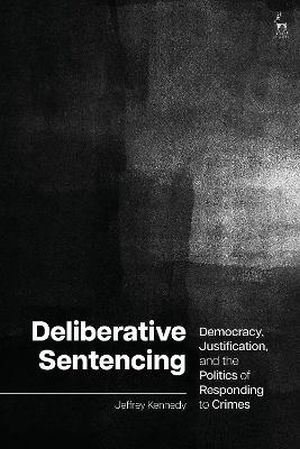
This book explores criminal sentencing as a political, legal and social process, setting out a democratic account of sentencing in common law jurisdictions.
Taking sentencing as a case study of public decision-making in which judges manage public interests, often through value-laden and discretionary choices, it draws on a particular vision of deliberative democracy. This is a vision on which the legitimacy of sentencing decisions is shown to hinge on processes of public reasoning, listening, and deliberation aimed at justifying sentences. The book thereby contributes to the broader project of grounding criminal justice, and the state power that enforces it, within political theory, and aligns criminal scholarship with a leading perspective on public governance.
Over the course of its chapters, the book unpacks and illustrates the demands of deliberative democracy for both sentencing participants and the legal frameworks that envelop them. This occurs with reference to the law, scholarship, and practices of various jurisdictions-primarily Canada, England and Wales, and the United States-and engagement with a range of issues: the public character of criminal wrongs and responses, mandatory sentencing provisions, sentencing rationales, lay input, and sentencing guidelines. The book offers a compelling account of criminal justice's public nature, outlines a framework of legitimacy for the everyday politics of sentencing courts, and provides a coherent foundation for more effective sentencing. In doing so, it shows the moral and practical value of taking democracy seriously and lays groundwork for both reform and future research in criminal theory.